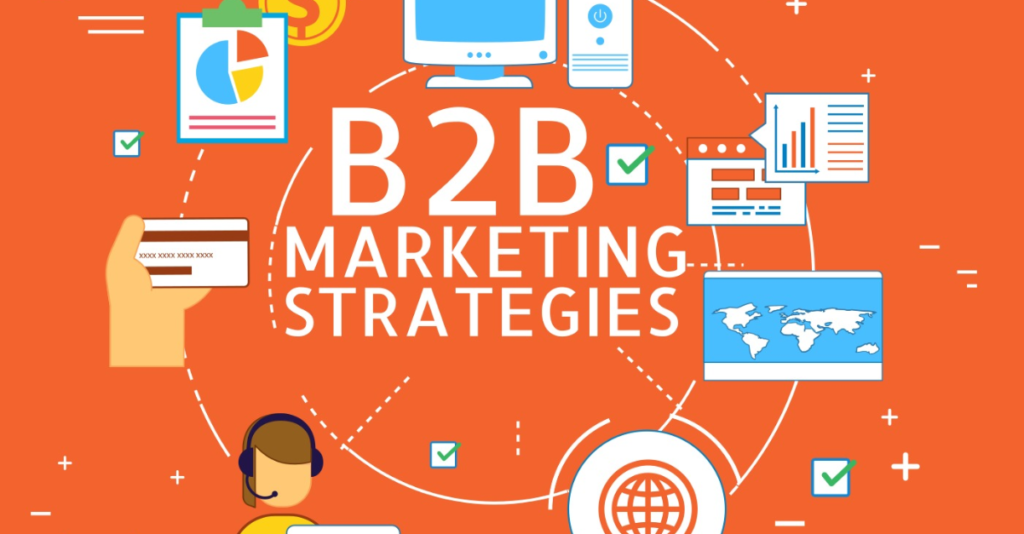In today’s competitive business environment, B2B companies are increasingly turning to content marketing to connect with their target audiences, establish authority, and drive growth. By delivering valuable and relevant content, businesses can nurture relationships that lead to long-term success. This article explores effective content marketing strategies tailored for B2B companies, emphasizing clarity and practical implementation.

Define Clear Objectives
Establishing specific goals is the foundation of a successful content marketing strategy. Whether aiming for lead generation, brand awareness, or customer retention, clear objectives provide direction and a basis for measuring success. For instance, a company might set a goal to increase qualified leads by 20% over six months through targeted content efforts.
Understand Your Target Audience
A deep understanding of your audience’s needs, challenges, and preferences is crucial. Developing detailed buyer personas semi-fictional representations of your ideal customers can guide content creation to address specific pain points and interests. This approach ensures that content resonates with the intended audience, fostering engagement and trust.
Create Valuable and Relevant Content
Producing high-quality content that educates and informs is key to establishing thought leadership. This can include blog posts, whitepapers, case studies, webinars, and podcasts. For example, a B2B company might publish a comprehensive guide on industry best practices, positioning itself as a knowledgeable resource.
Optimize for Search Engines (SEO)
Enhancing content visibility through search engine optimization is essential. Conducting keyword research and optimizing on-page elements like titles, headers, and meta descriptions can improve organic search rankings. A strong SEO strategy increases the likelihood of your content being discovered by potential clients searching for relevant information.
Leverage Multiple Content Formats
Diversifying content formats caters to different audience preferences and consumption habits. Incorporating blogs, articles, webinars, podcasts, and social media content can engage users across various platforms and stages of the buyer’s journey. For instance, transforming a whitepaper into a webinar can appeal to those who prefer visual learning.
Distribute Content Strategically
Effective distribution ensures that content reaches the intended audience. Sharing content through channels where your audience is most active such as industry forums, LinkedIn, email newsletters, and your company website maximizes engagement. Tailoring the distribution strategy to align with audience habits enhances the impact of your content.
Measure and Analyze Performance
Regular assessment of content marketing efforts is vital for continuous improvement. Utilizing metrics like website traffic, engagement rates, lead conversions, and return on investment (ROI) provides insights into what works and what doesn’t. Analyzing performance data enables refinement of strategies to better meet business objectives.
Personalize Content for Enhanced Engagement
Personalization involves tailoring content to meet the specific needs and interests of different segments within your target audience. By leveraging data and insights, B2B companies can create content that speaks directly to individual concerns, increasing relevance and engagement. For example, sending personalized email newsletters based on a recipient’s industry or previous interactions can foster a stronger connection.
Collaborate with Industry Influencers
Partnering with industry influencers can amplify your content’s reach and credibility. Influencers have established trust with their audiences, and their endorsement can lend authority to your content. This collaboration can take various forms, such as guest blogging, co-hosting webinars, or featuring influencers in interviews.
Repurpose Content for Maximum ROI
Repurposing existing content into different formats extends its lifespan and maximizes return on investment. For instance, a well-received blog post can be transformed into an infographic, a podcast episode, or a series of social media posts. This strategy allows B2B companies to reach different audience segments without creating new content from scratch.
Conclusion
Content marketing is a powerful tool for B2B companies seeking to build meaningful relationships, establish authority, and drive long-term growth. By defining clear goals, understanding your audience, and creating valuable content, businesses can effectively engage their target market. Leveraging SEO, diversifying content formats, and distributing content strategically further amplifies visibility and impact.
Additionally, personalizing content, collaborating with industry influencers, and repurposing material ensures maximum return on investment. Regular performance analysis allows companies to refine their approach, ensuring ongoing success.
